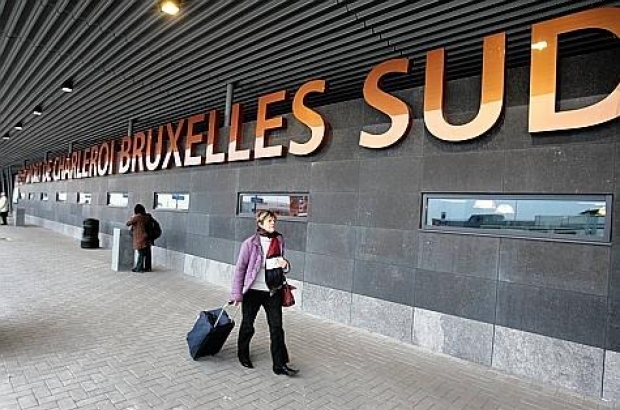- Daily & Weekly newsletters
- Buy & download The Bulletin
- Comment on our articles
€30 million Charleroi Airport subsidies under fire
With low-cost airline Ryanair finishing its third two-day strike in a month earlier this week, pressure is increasing to review the substantial subsidies given to its Belgian base of Charleroi Airport.
Many critics question if this state aid should remain, if profitability is not always there, especially as flying is not the most ecological means of transport and Ryanair is so vilified.
Today, public limited company Brussels South Charleroi Airport (BSCA) manages the airport infrastructure, partly financed by public money. The Walloon region allots €30 million a year to ensure the safety and security of the space.
“It’s a fairly virtuous model,” Walloon budget minister Adrien Dolimont (MR) said.
“We see the whole economic fabric that has developed around the airport, in particular the aeropole, with various companies that have established themselves there. It is important to be able to continue to support this sector. It is a choice that was made several years ago.”
However, this model is not one chosen by all regional airports. In Lille, infrastructure is managed by a private company selected after a call for tenders.
“This model has always existed,” said Christophe Coulon, president of the joint union of Lille airport and vice-president of the Hauts-de-France region.
"It's a public contract with a company selected according to demanding criteria but which manages the airport without financial support from the community. There is total autonomy."
It took more than 10 years for Charleroi Airport to generate its first profit. Despite its more than eight million passengers a year estimate, the subsidy is essential to survive financially.
“Today it is like that, but who says the subsidies will still be there tomorrow?” said airport chief executive Philippe Verdonck. “The decision to privatise the company or not is one that should be asked to the shareholders, and not to me.”
A study by the University of Mons conducted in 2020 by senior auditor Julien Denis-Tricart has shown that the economic footprint of Charleroi airport in 2018 represented more than 4,000 jobs and some €367 million in added value.
These figures are used as an argument to justify public investment in this ecologically and socially criticised activity, but for how much longer remains unclear.
Many people say that without these subsidies, the airport would be at a loss, as Charleroi could triple its fees and its main user Ryanair would still stay.
Didier Lebbe, spokesperson for the Confederation of Christian Trade unions (CNE) representing Ryanair employees, said: “Why are we giving public money to the airport to allow a company which does not respect any rules to do such a lucrative business? Especially as this financial windfall totally escapes the Belgian tax authorities.”
The furore follows a complaint lodged last month by Brussels Airlines to the European Commission relating to "terminal navigation charges" collected for every take-off. At Brussels Airport, airlines have to contribute part of the payment, where the entire amount is paid by the government at Belgium's other regional airports.
“It is not fair that federal and regional governments are paying this tax in full at regional airports such as Charleroi, which are in direct competition with us, while we ourselves have to pay a large proportion of these fees,” said Brussels Airlines chief executive Dorothea von Boxberg.



















